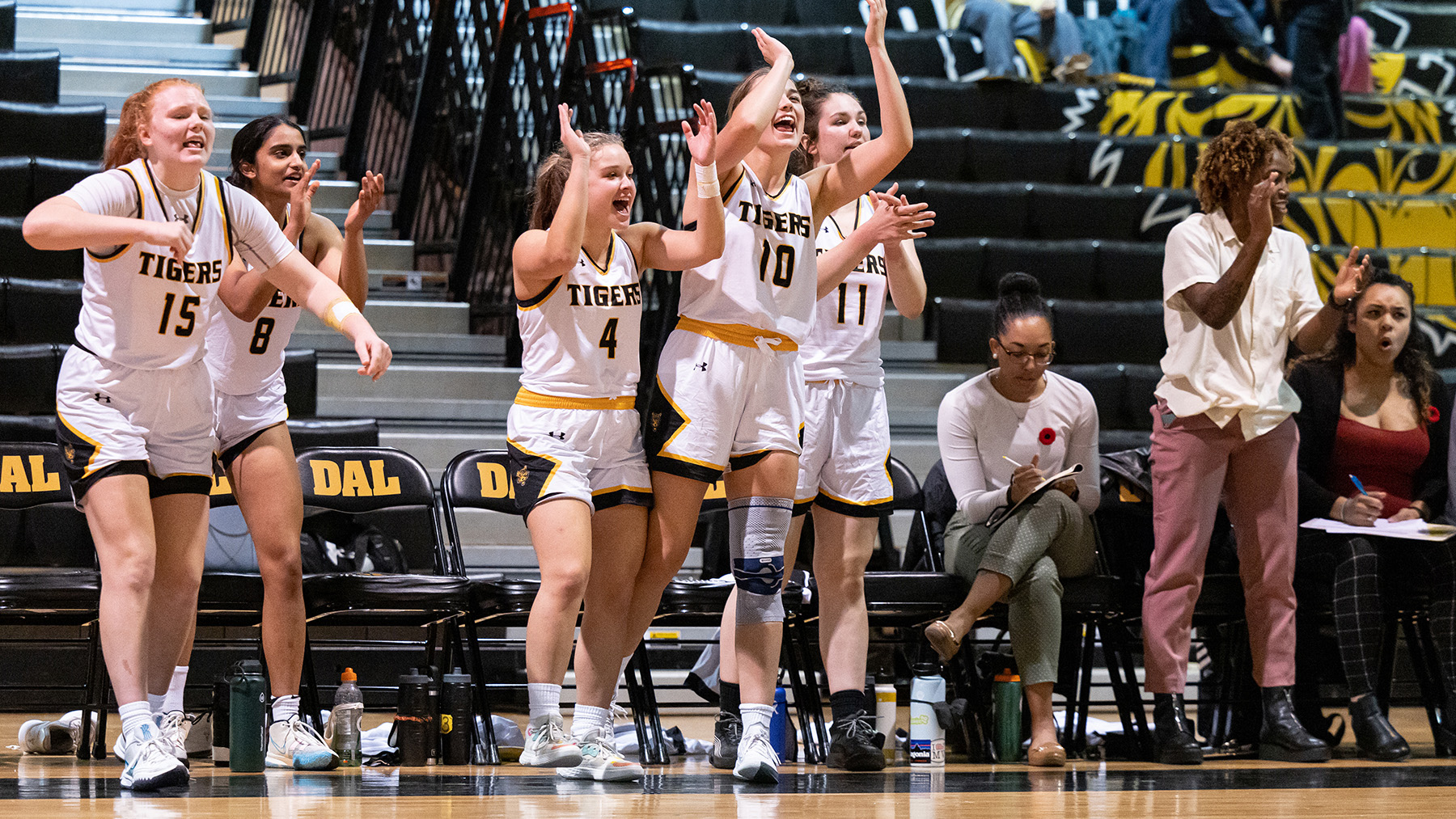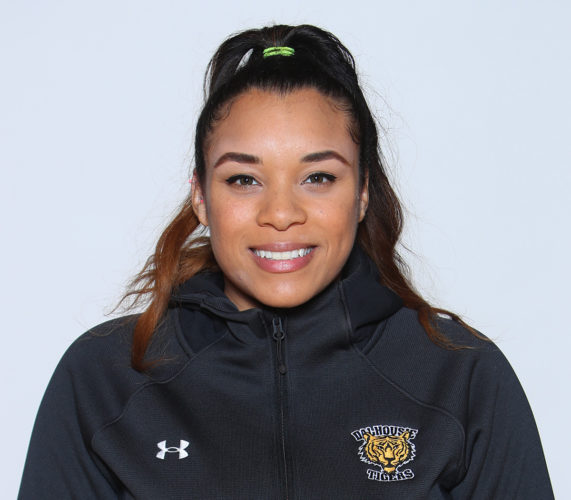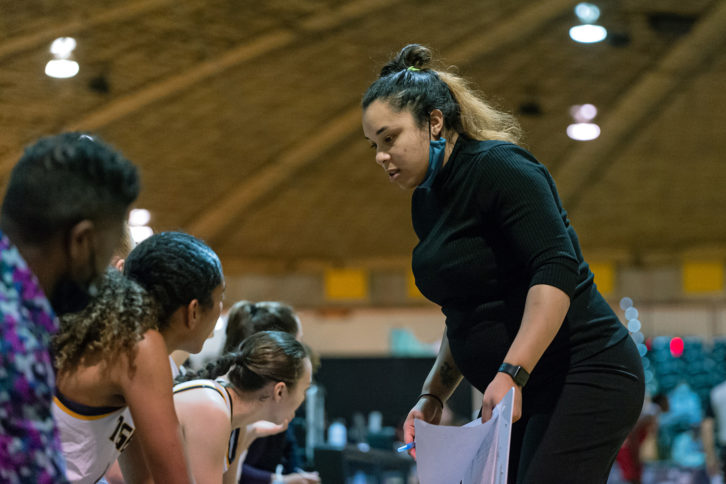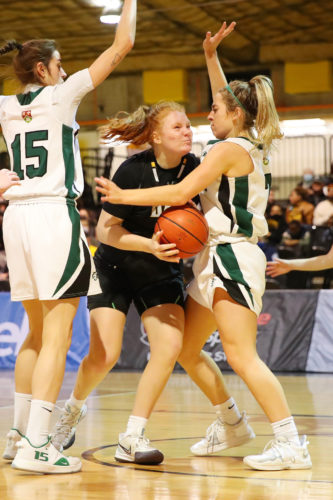Dalhousie’s new female coach development program forges strong bonds
Coaches, athletes form tight-knit web of shared knowledge for women in sports

caption
Players and assistant coaches for the Dalhousie women's basketball team cheer from the bench. Marika Williams (right) is taking part in the female coach development program.Sports leaders from across Canada share coaching philosophies and life lessons in a new program aimed at breaking gender barriers around head coaching jobs at Dalhousie University.
More than 20 female coaches at Dalhousie are learning collaboratively from mentors and guest speakers from diverse athletic backgrounds.
The program, which started in September 2021, is aimed at helping female assistant coaches to advance within Dalhousie Athletics. There was only one female head coach of a Dalhousie varsity team in 2021-22 — Cindy Tye, the women’s soccer coach. She is also leading the female coach development program.
Women’s assistant basketball coach Marika Williams said she and the other participants hear from coaches, players, commentators, analysts and others in the field. She bounces ideas off her mentor, who’s a veteran coach in Ontario.

caption
Marika Williams, through Dalhousie’s female coach development program, is mentored by a coach in Ontario.“I’ve really enjoyed learning about individual sports, especially the mental aspects,” said Williams. “Swimming, for example…when you’re on the board ready to start your race—that’s you. You prepare completely differently.”
Williams said these perspectives made her more aware of the individual elements of athletic performance, even in a team setting. This helps her to connect with her players one-on-one.
She said she tries to get to know one player during each practice, asking more in-depth questions and checking in on their personal lives.
“Yes, you want to play basketball … it’s still important to be a human being,” Williams said.
“At the end of the game—win, lose or draw—you still go home to your families, your friends, your schoolwork. It’s not your whole life so it’s important to have that balance. You’re going to get more from them when you care about what they’re doing as people, not just as athletes.”

caption
Marika Williams, assistant coach for the Dalhousie women’s basketball team, has learned how to connect with her individual players.Katie Wuotila, a forward on the women’s basketball team, said the personal touch hasn’t gone unnoticed. She describes the player relationships with the female coaches as “kind of like friends.”
“Obviously there’s that authority and respect,” Wuotila said, “but I feel super comfortable talking to all of them. And the rest of the team does for sure.”

caption
Katie Wuotila (centre) says she has a comfortable, friendship-like bond with her female basketball coaches.The development program has also created a network for women in sports to pass down their experience-based knowledge and skills to the next generation.
“I liked learning from coaches that were older than me because they’ve been around for so long,” said Williams. “Chances are they’ve had the same issue or the same question as I’ve had, and they’ve probably found the answer ten times over.”
Wuotila had the same thing to say about her young female coaches.
“We want to hear what they have to say because they’ve already been in our shoes.”
She added the new program is a first step to more gender-diverse leadership in sports.
“Putting resources into it is where it starts,” she said. “I think saying, ‘We want more women in coaching, we want more female coaches,’ is one thing. But putting action into it, like Dalhousie has, is another.”


B
Bob